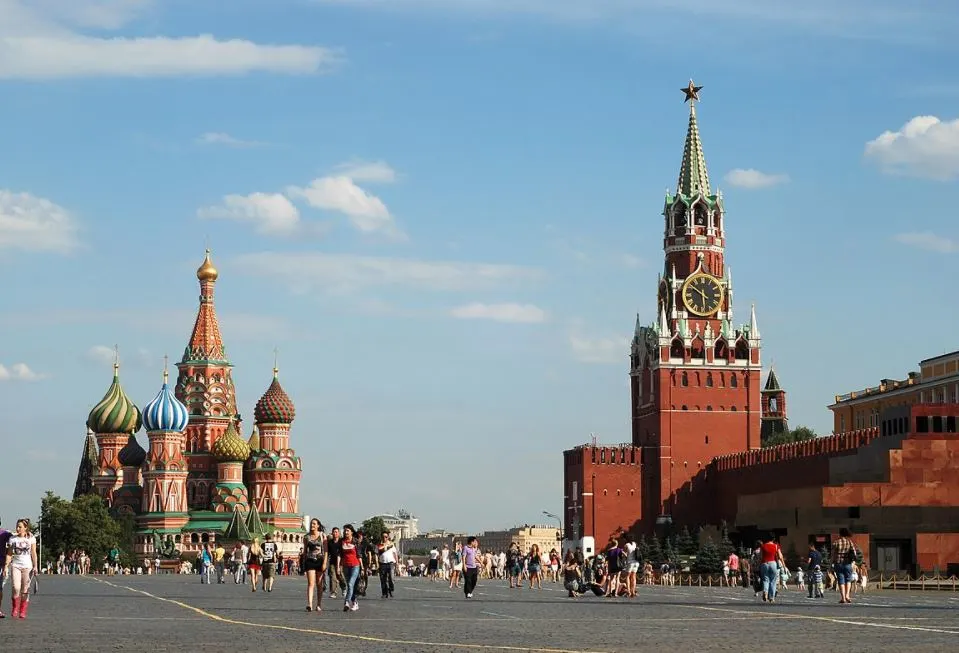One of the most iconic squares in the world can be found in the capital of Russia.
Let’s take a closer look a the interesting facts about Red Square in Moscow, an amazing public space in a fascinating city.
1. It’s situated right in the heart of Russia’s capital
Red Square is a monumental public space right in the heart of the capital of Russia, Moscow. It’s also one of the oldest squares in the city which means that the massive metropolis that Moscow is today was built around it.
The square is bounded by the eastern wall of the Kremlin, the enormous fortified complex which includes 5 palaces and 4 cathedrals among many other structures. On the other side of the Kremlin, there’s the Moskva River which served its purposes as a natural line of defense for the complex.
It’s fair to conclude that this iconic square is one of the ultimate icons of Moscow and Russia and one of the most famous squares in the world!

2. Its length is the equivalent of more than 3 football fields
Apart from being one of the oldest squares in Moscow, Red Square is also one of the biggest. It has a total width of 70 meters (230 feet) and a total length of 330 meters (1082 feet).
This means that this enormous square, which almost has the shape of a rectangle, has the equivalent length of more than 3 football fields, quite a walk to cross it!
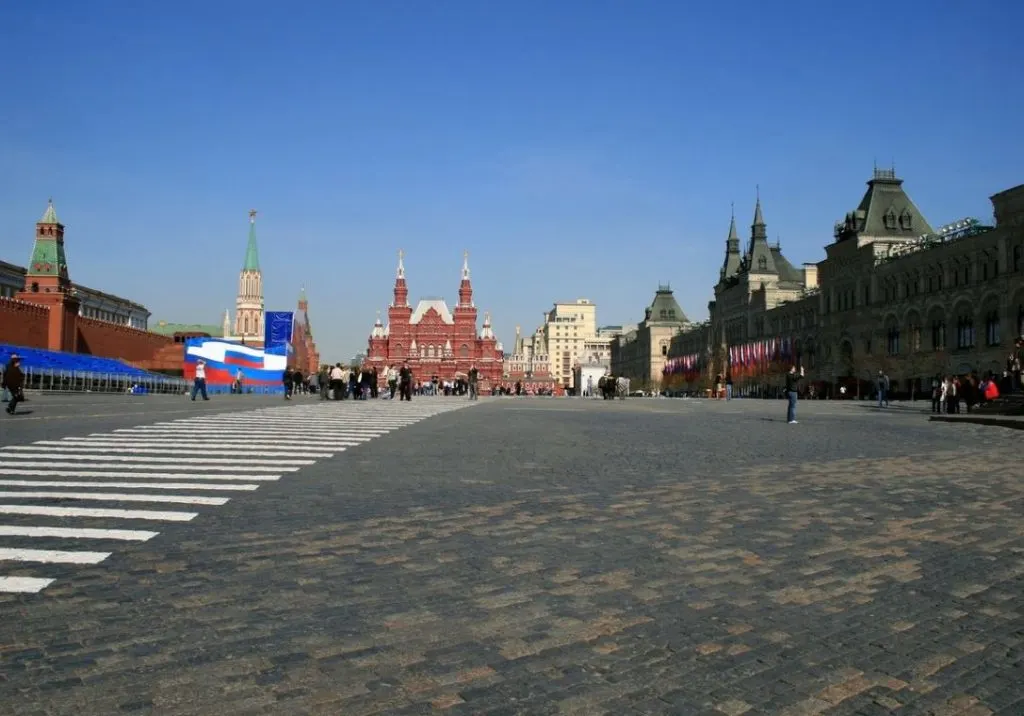
3. Its name used to mean something completely different
One of the first things you probably think when you hear the name “Red Square” is that it has something to do with Communism, right? Well, not quite, because the original name of the square was “Krasnaya ploshchad,” which archaically translates to “Beautiful Square.”
This is also the name of many other squares in Russia by the way. Krasnaya doesn’t mean the same anymore as it now translates to “red,” which is how the square got its name. The world beautiful is, however, derived from it and is “krasivaya” today.
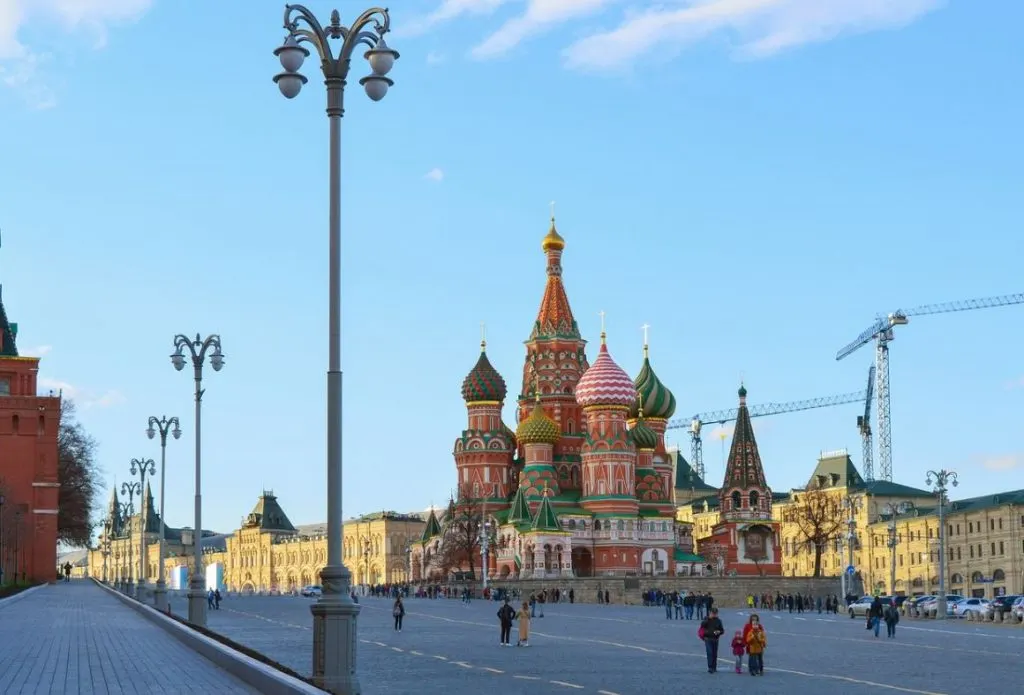
4. It has been the historical center of Moscow for a long time

The historical center of Moscow was literally built around Red Square, which means it was the central location of the city for numerous centuries.
It was, however, much smaller initially as the name initially referred to the location between the world-famous St. Basil’s Cathedral and the Spasskaya Tower of the Kremlin. It wasn’t until the reign of Tsar Alexei Mikhailovich (1629-1676) that the square was extended.
One of the most remarkable Red Square facts is that this extended space was originally referred to as “Pozhar,” or “burnt-out place,” a reference to the burned-down buildings that used to occupy this side of the square.
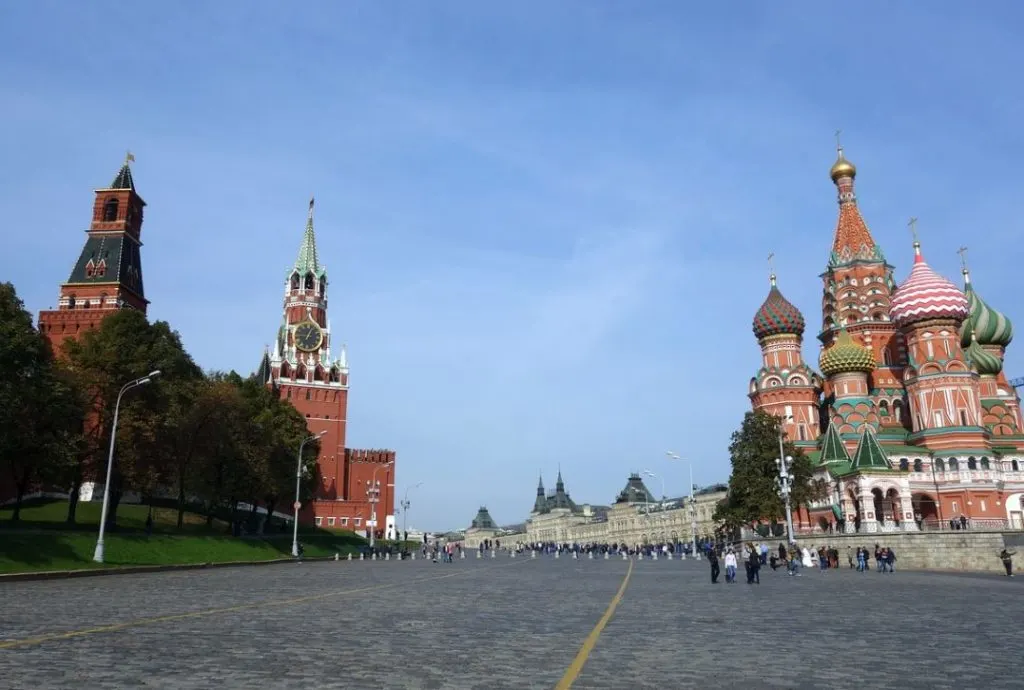
5. There used to be a moat between the Kremlin Wall and the square
The square is bounded on its southwest side by the enormous wall of the Moscow Kremlin. Because this side of the Kremlin didn’t really have a natural boundary, an additional defense structure was built in the form of a giant moat.
This enormous moat was designed by Italian Renaissance architect Aloisio the New, a man who was hired to work on various buildings in Moscow, and built between 1508 and 1516.
It was included in between the square and the wall and had a total length of 541 meters (1,775 feet), a width of 36 meters (118 feet), and a depth of up to 13 meters (42 feet).
This moat eventually dried up and even served as a garden for growing medicinal plants in the late 17th century.
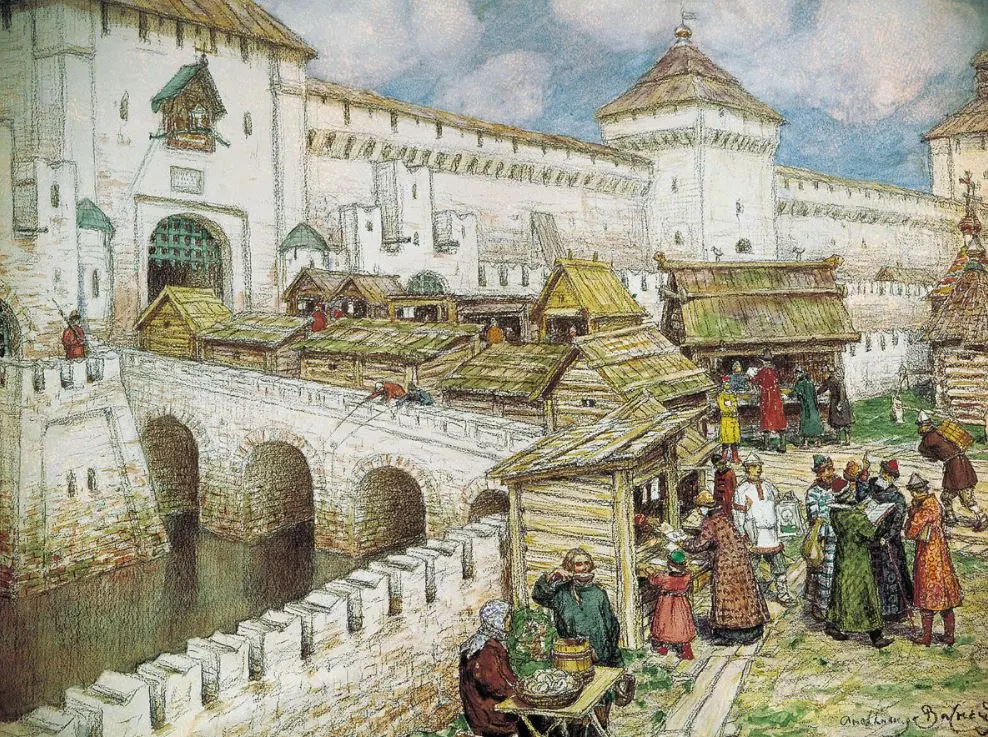
6. A famous procession with a donkey took place here once a year
Being the central square of the city, located right next to the Moscow Kremlin, it’s normal that it has been used for various processions. The square was even considered a sacred location so it wasn’t just used for military parades.
One of the most remarkable processions took place once a year on Palm Sunday. That day, the Patriarch of Moscow, joined by the Tsar, jumped on his donkey and rode around in a procession fittingly referred to as the “Procession on a donkey,” in which St. basil’s Cathedral served as an allegory for the biblical Temple in Jerusalem.
The last time that this remarkable event took place on Red Square was in the year 1693.
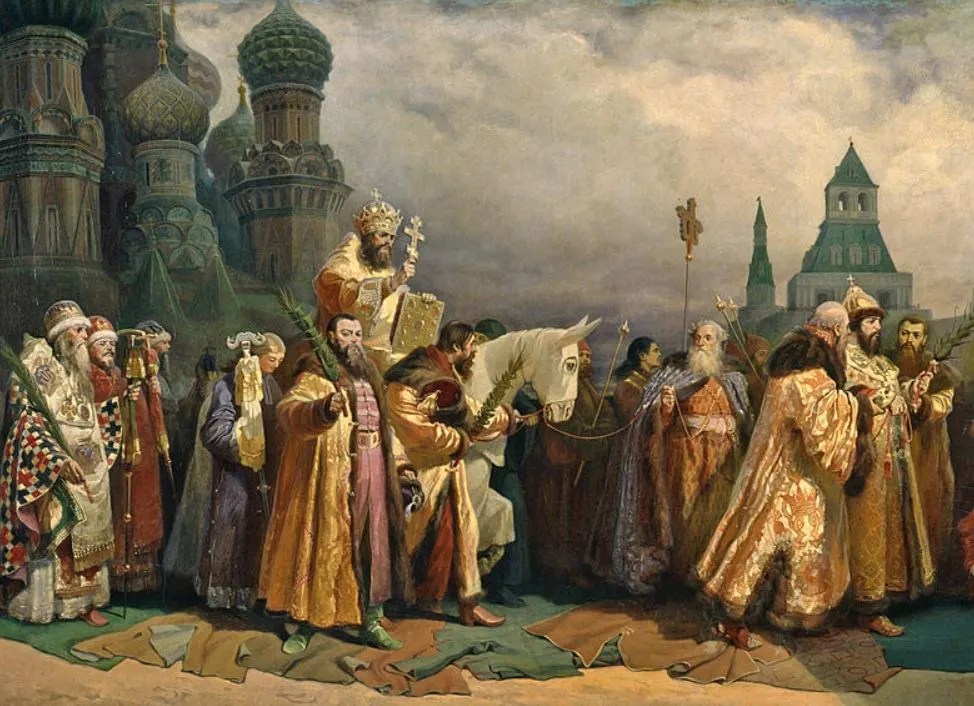
7. It took until the early 19th century before the square was paved in stone
While this pedestrian square is magnificently paved in stone today, this wasn’t always the case. One of the most remarkable Red Square facts is that before the 19th century, there was no pavement at all!
Because the merchants finally started complaining about having to sell their goods in such a muddy place, the square was completely paved in stone in the year 1804, and it was about time!
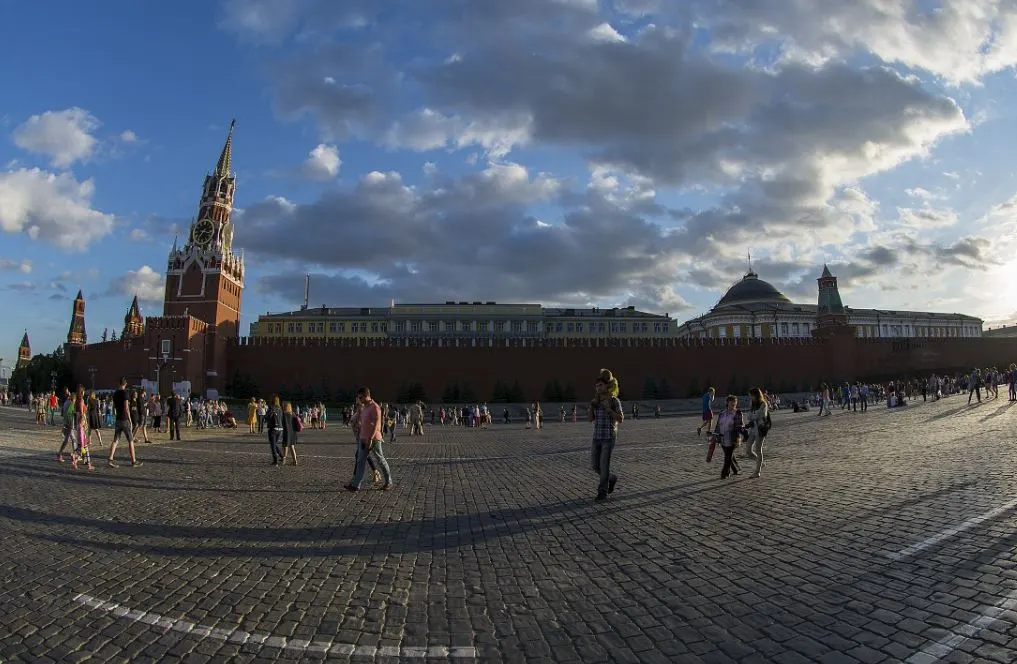
8. A statue was erected in 1818 to commemorate an event 2 centuries earlier
The monument located right in front of the colorful cathedral on the square was erected in the year 1818, shortly after the invasion of Napoleon in Russia in 1812.
In Russia, this event is referred to as the “Patriotic War of 1812.” The Russian victory sparked a new sense of Patriotism, so the statue was erected to commemorate another Russian victory in 1612.
This was the year that the so-called “Time of Trouble” ended and the Polish-Lithuanian invaders were chased out of Moscow by a Russian volunteer army under the command of Prince Dmitry Pozharsky and Kuzma Minin.
This statue was built in their honor and is referred to as the “Monument to Minin and Pozharsky.”
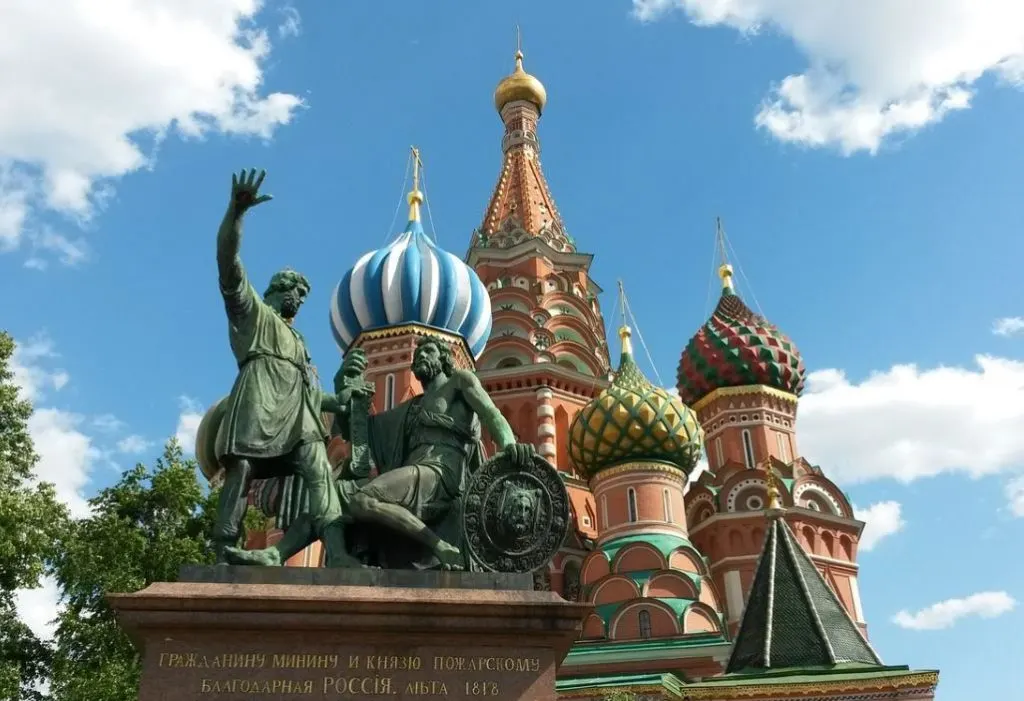
9. Military parades became the norm during the Soviet Era
After the establishment of the Soviet Union, Red Square became the focal point of military parades and displays. That’s probably how many people who remember this period still perceive the square, even though Communism ended in the early 1990s.
The Lenin Mausoleum was erected in 1924 and the Magnificent Kazan Cathedral and Iverskaya Chapel with the Resurrection Gates were demolished to make way for heavy military vehicles.
Luckily, both these structures have since been rebuilt after the Fall of the Soviet Union.
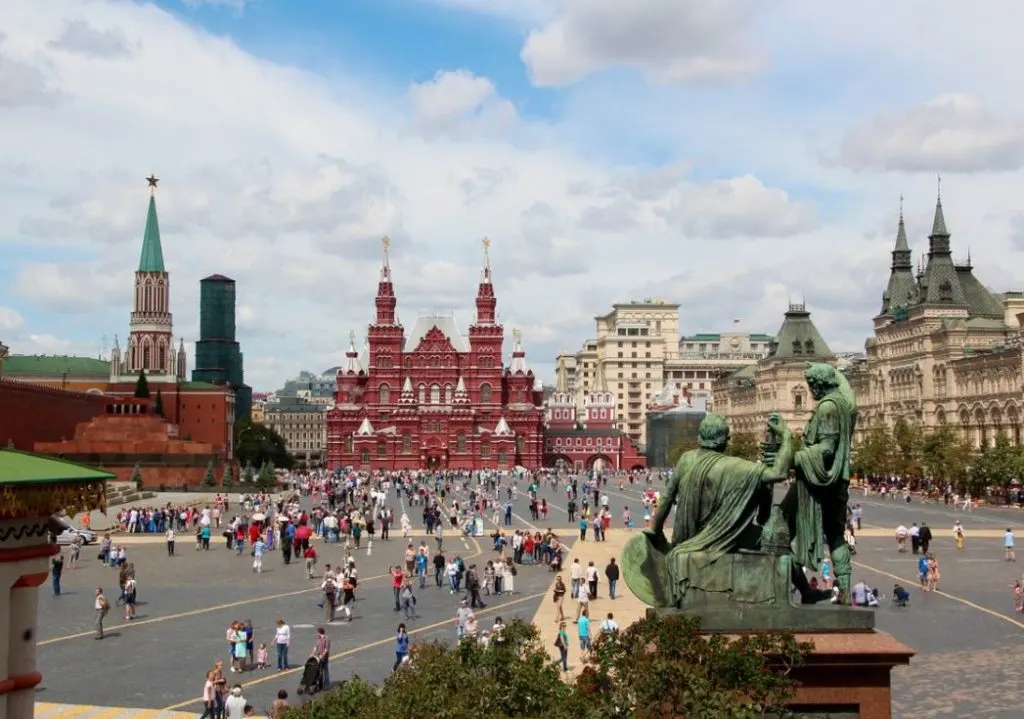
10. The square was added as a UNESCO World Heritage site in 1990
After the fall of the Soviet Union, most of the military parades (there still are occasionally) made way for concerts of some of the most famous artists in the world, including but not limited to Linkin Park, The Prodigy, Shakira, the Scorpions, Paul McCartney, Roger Waters, and the Red Hot Chili Peppers.
As one of the most iconic landmarks in Moscow, both the Kremlin and Red Square have been listed as a UNESCO World Heritage Site, right before the Fall of the Soviet Union in 1990!
